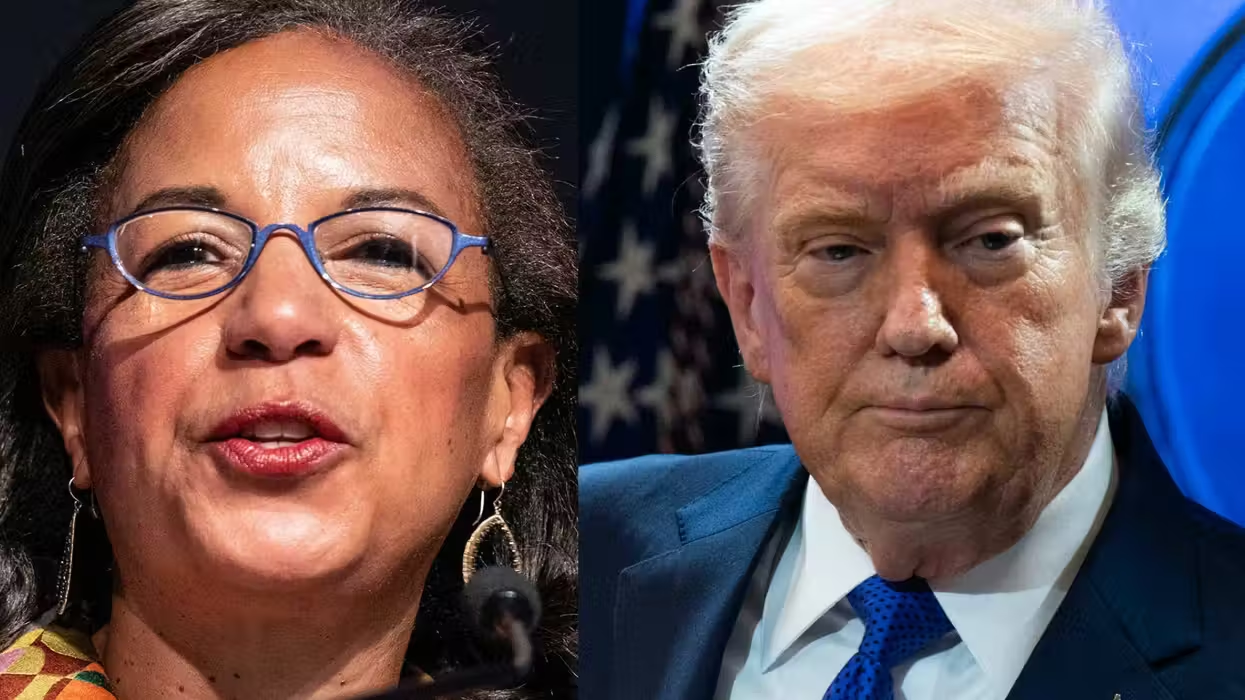The mainstream media reports about the Supreme Court’s Hobby Lobby decision took a simple angle: conservatives win, liberals lose.
Certainly, the lineup of talking heads and protesters follows this arrangement, with pro-life forces claiming victory. More broadly, many conservatives are celebrating the decision as vindicating the religious freedom of business owners.
But the Supreme Court’s decision may come to haunt conservatives. Because the decision doesn’t only affect Obamacare—it potentially affects any federal law.
Of course, most business owners want to treat their employees and customers fairly, and most people of any religion are decent. But now that the Supreme Court has opened the door to corporate religious claims, courts can’t treat some religions more favorably than others.
 AP Photo/Sue Ogrocki
AP Photo/Sue Ogrocki
Consider the soldier returning home from war who wants to return to the civilian job he or she held before being deployed. Federal law requires that members of the uniformed services—including the Reserves and National Guard—can return to their civilian jobs after they return from military service. And companies have to give returning citizen-soldiers their jobs back with the same seniority, status, and pay they would have had if they’d never gone to serve in the first place.
This federal law provides essential protections for our servicemen and women as they return to civilian life. But now what if the soldier is unlucky enough to work for a corporation that decides it has a religious objection to military service? Maybe the owners are pacifists who object to America’s commitments abroad—or maybe they just don’t like our troops fighting in one particular country.
And now the corporation claims an exemption from the law, and an unelected federal judge decides that the corporation has a “sincerely held religious belief” against giving our servicemen and women their legal rights. The company has a good argument, too: since the Supreme Court said in the Hobby Lobby decision that the government can pay for contraception if it’s that important, so too the government can just pay the returning soldiers a civilian salary if it’s that important.
Or consider a devoted Christian who works at a bank. One day, a rich investor from a foreign country takes over the bank. The new management tells her she’s got to stop wearing her necklace with the cross, and cover up her hair too. When she refuses, they fire her. The federal Civil Rights Act prohibits discrimination based on religion, but it includes an exception for a "religious corporation." That was intended to cover churches and religious nonprofit organizations—even the government understands that churches shouldn’t be forced to hire people of different religions as ministers or teachers—but Congress didn’t intend it to cover for-profit businesses. But now the bank waves the Hobby Lobby decision in the judge’s face, and says it should get an exemption from anti-discrimination laws because of its “corporate religion.”
 AFP PHOTO / Jay DIRECTO
AFP PHOTO / Jay DIRECTO
Is this what the Founders of our country intended?
They understood the importance of our sacred freedoms. These include, in Thomas Jefferson's words, the freedom to "worship our Creator in the way we think most agreeable to His will," without interference from the secular government.
But corporations are a different matter. Corporations don’t pray; they don’t have souls; they seek neither redemption nor salvation. Giving them the same religious rights as living, breathing people goes against common sense.
America is changing in many ways. The Constitution was ordained to “secure the blessings of liberty to ourselves and our posterity.” If we want our posterity to enjoy the freedom of religion that we hold precious, we’re better off not giving it away to corporations.
Ron Fein is the Legal Director of Free Speech For People.
–
TheBlaze contributor channel supports an open discourse on a range of views. The opinions expressed in this channel are solely those of each individual author.


 AP Photo/Sue Ogrocki
AP Photo/Sue Ogrocki






